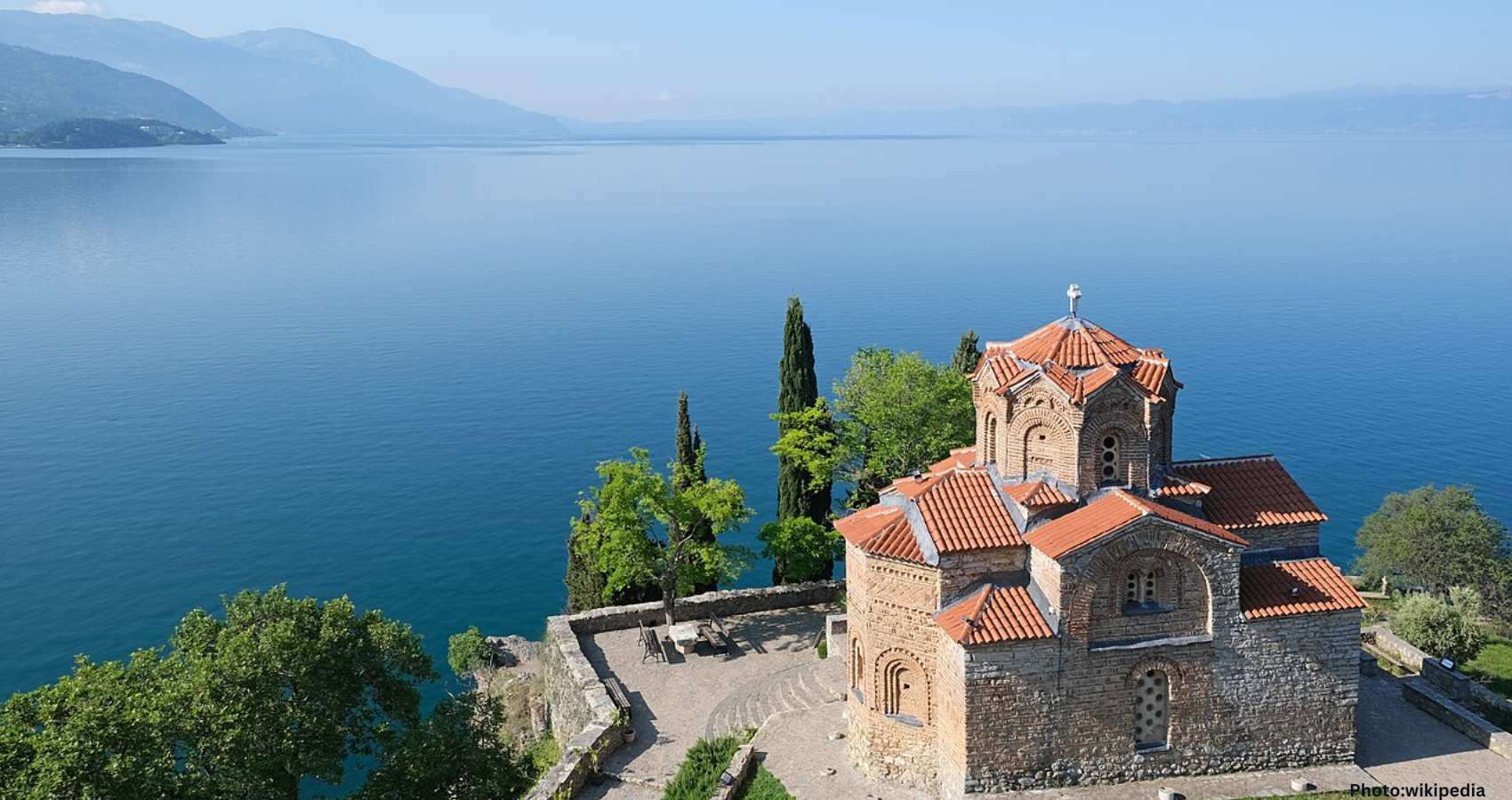On a chilly day by Lake Ohrid, a mother reflects on her return to the Church of Saint John the Theologian after years of absence, seeking a sense of belonging and spiritual connection.
On an unusually chilly day by Lake Ohrid in North Macedonia, a mother begins the familiar climb up the stone path toward the hilltop Church of Saint John the Theologian at Kaneo. The wind bites through her headscarf and leggings, prompting her to wonder why she chose this route when she could pray at home without the journey. Yet something within her compels her to return.
She had long stopped attending services, opting to stay home while caring for her mother-in-law. No one in her community questioned her absence or reached out to invite her back. Her friends, who preferred laughter and conversation in homes or cafés over church gatherings, did not comment when she decided to forgo the trek from Opënica. Life moved on without her.
Now, her desire to return is not driven by loneliness but by the realization that something meaningful has been missing from her life. Attending the service offers her a reason to step beyond the familiar walls of her home.
As she climbs, her legs ache; she is no longer accustomed to the distance from the drop-off point to the church. The cobblestones press painfully underfoot, and she finds herself winded from the repeated climbs. The sky is overcast, the lake shrouded in mist, making the day feel unseasonably cold for August. The trees around her appear to wilt, their leaves curling in the chill, while the veins in her hands throb from the brisk air.
Along the path, she encounters familiar faces—people she knew decades ago. Some walk slowly ahead, while others cluster together, taking photos of the lake and trees. They mostly wear black, just as she does. They offer polite smiles of recognition but say nothing about her absence. To them, she feels like an outsider, despite having attended services for many years.
She chooses not to greet anyone, walking past the arch that welcomes visitors into the church complex and ascending the steps. From her vantage point, she can see the lake’s waves and the entrance before her. The bricks of the church appear faded, their shape worn, yet the overall architecture—the familiar Orthodox design she once visited so many times—remains unchanged. Only the people have changed. One priest she once confided in about her son’s decision to identify as gay is gone, reportedly kidnapped and never returned. She feels a pang of disappointment at his absence.
Why has she come? She knows the divine resides within her home as much as anywhere else. She prefers solitude, and there is no one in the crowd she particularly likes. The looks from women of her generation—unchanged—feel more like judgment than welcome. She could leave and go unnoticed.
Yet she remains, drawn by habit and a sense of belonging. The body remembers what the mind may question. Inside the church, she senses the familiar scents of melting candles and incense. The coolness emanating from the stone and the gilded icons of Christ on the walls beckon her to lift her gaze and remember that one thing alone matters: the divine.
She closes her eyes, even though the service has not yet begun. The familiar hymns drift through her memory, soothing in their repetition. Emotion wells up within her—not from the people, but from the sacred space itself. A tear escapes, and she wipes it away. Others may be watching, but she pays them no mind. This is her right.
This is her church. This is her faith. Born into it, she returns time and again for a reason that transcends the presence of others. She does not need to conform to those around her to claim this sense of belonging. While she may pray elsewhere, she also has the right to inhabit this place because she belongs. New faces may arrive, and old ones may depart, but she is not responsible for them.
As the liturgy begins, she stands still, her gaze cast humbly downward. In that moment, she understands: the journey, the pain, the returns—they all matter because this place matters.
Source: Original article

